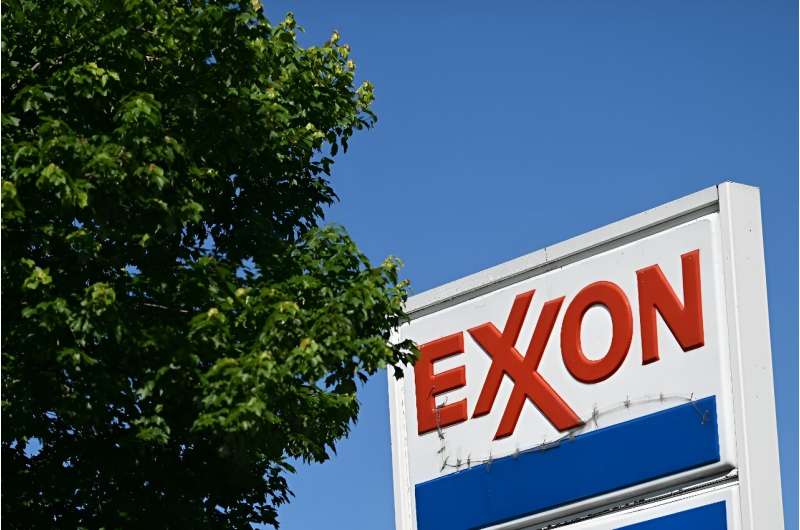
Global oil demand is unlikely to fall by 2050 despite progress on renewable energy, the US oil and gas giant ExxonMobil said Monday, pointing to rising population and demand for energy worldwide.
In a new report, ExxonMobil said it “sees a plateau in oil demand beyond 2030, remaining above 100 million barrels per day through 2050.”
This would be roughly in line with oil demand last year of 102.2 million barrels per day, according to the International Energy Agency.
The figure is significantly higher than projections from its competitor BP, which predicted earlier this year that oil demand would decrease to around 75 million barrels per day by 2050 on its current trajectory.
In its report, ExxonMobil estimated that around four billion people around the world do not currently have access to the energy they need.
With the global population expected to rise from eight billion to almost 10 billion by 2050, meeting the world’s basic energy needs “will drive a projected 15% increase in total energy use worldwide between now and 2050,” the company said.
“Renewables will play an important role,” it added. “So will oil and natural gas.”
ExxonMobil estimates that oil and natural gas will still make up more than half of the world’s energy mix by 2050, even as the proliferation of electric vehicles reduces the demand for gasoline at the pump.
“The large majority of the world’s oil is and will be used for industrial processes, such as manufacturing and chemical production, along with heavy-duty transportation like shipping, trucking, and aviation,” the company said.
Despite this, ExxonMobil still expects global carbon emissions to decline by around 25 percent by the middle of the century, thanks to greater energy efficiency, more renewables, and the introduction of new “lower-emission technologies” like carbon capture and storage.
© 2024 AFP
ExxonMobil expects global oil demand near current levels in 2050 (2024, August 27)
retrieved 27 August 2024
from https://techxplore.com/news/2024-08-exxonmobil-global-oil-demand-current.html
part may be reproduced without the written permission. The content is provided for information purposes only.








